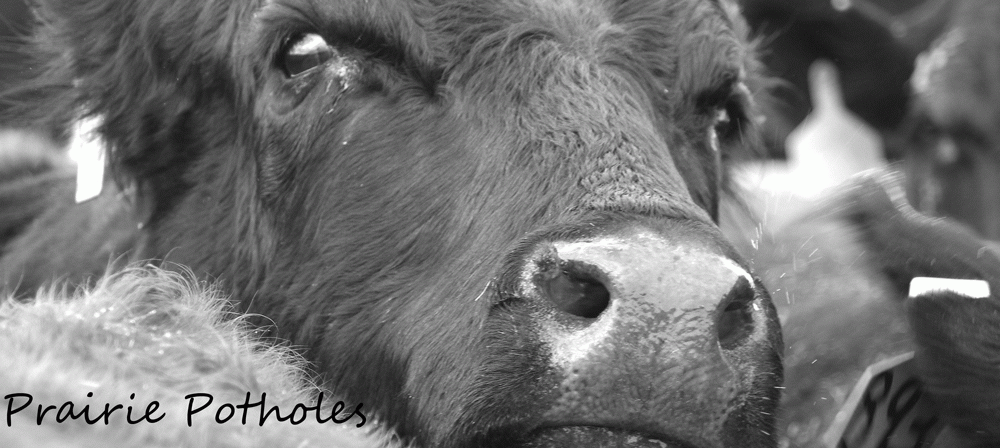We're in the depths of hay feeding season out here on the outskirts of my little time warp town, and are those cows ever lucky that we love them. It's been frightfully cold, snowy and windy. When it turned 30 degrees yesterday, I was loading up some supplies at the store and felt as though I should have purchased spring gardening projects: it felt that warm out.
No would be the correct answer here, and for good reason. If you're a veterinarian or other type of animal scientist (or a rancher for god's sake), please stop reading now. I don't want to embarrass myself.
Us people, we only have one stomach (a monogastric system, if you will). We tend to choose foods that provide us with a variety of nutrients. Cows, and other members of the ruminant family such as deer and camels, have developed a digestive system that has a stomach which is comprised of four major compartments. Evolutionary biologists theorize that this happened because it allows these types of herbivores to thrive on relatively poor qualities of forage. Along with this adaptation came the presence of micro-organisms and protozoa that exist within a ruminant's digestive system that allow them to break down cellulose and form proteins from foodstuffs that would be useless for humans.

This doesn't mean that ruminants can survive on moldy hay and prarie dust, though. They ideally need good hay that has appropriate protein and crude fiber content (yes, even though it's a weird idea to wrap your head around, grass does have a protein content). So we feed them hay in the morning, they meander over to the water tank for a drink, come back to the hay ground and lay around in the uneaten warm forage and regurgitate their food. This ruminant digestive system requires that they masticate all of the forage that they've consumed by bringing it back in to their mouth and chewing, sometimes several times over, in order to allow the latter of the two stomach components to properly absorb all of the nutrients. It's called chewing their cud and they don't do it just because they're bored. It's just what the little evolutionary bug told them to do.
Ruminate on those facts for a while.






No comments:
Post a Comment